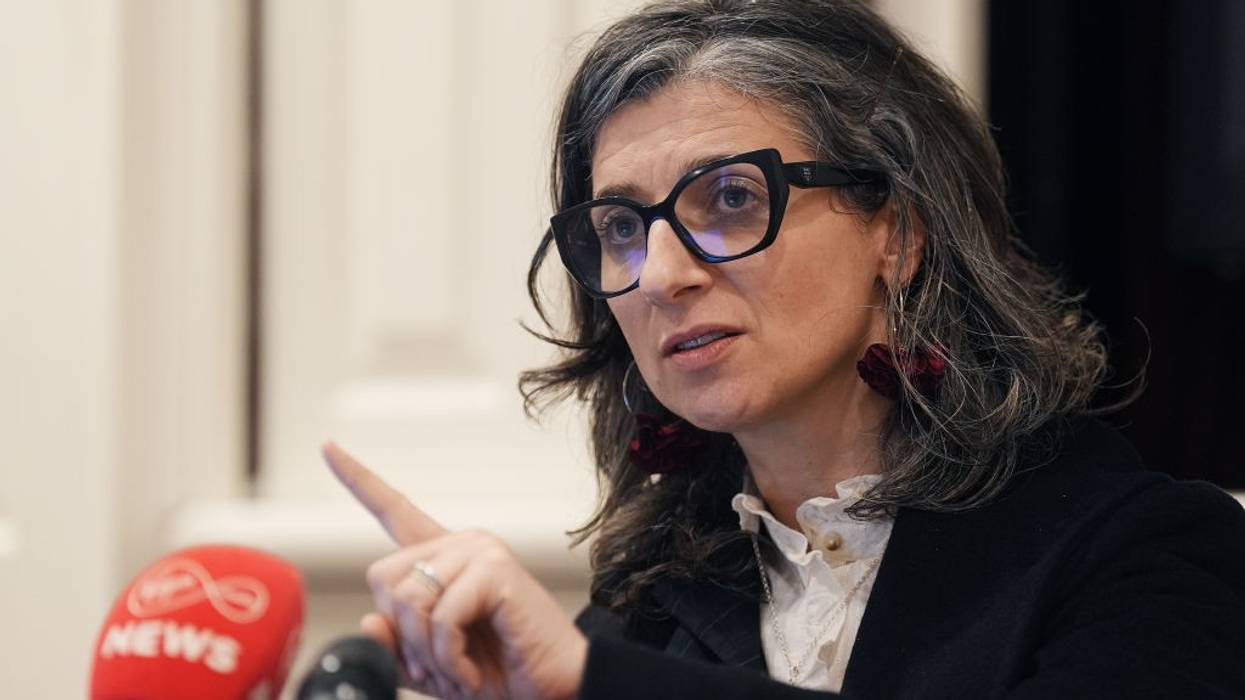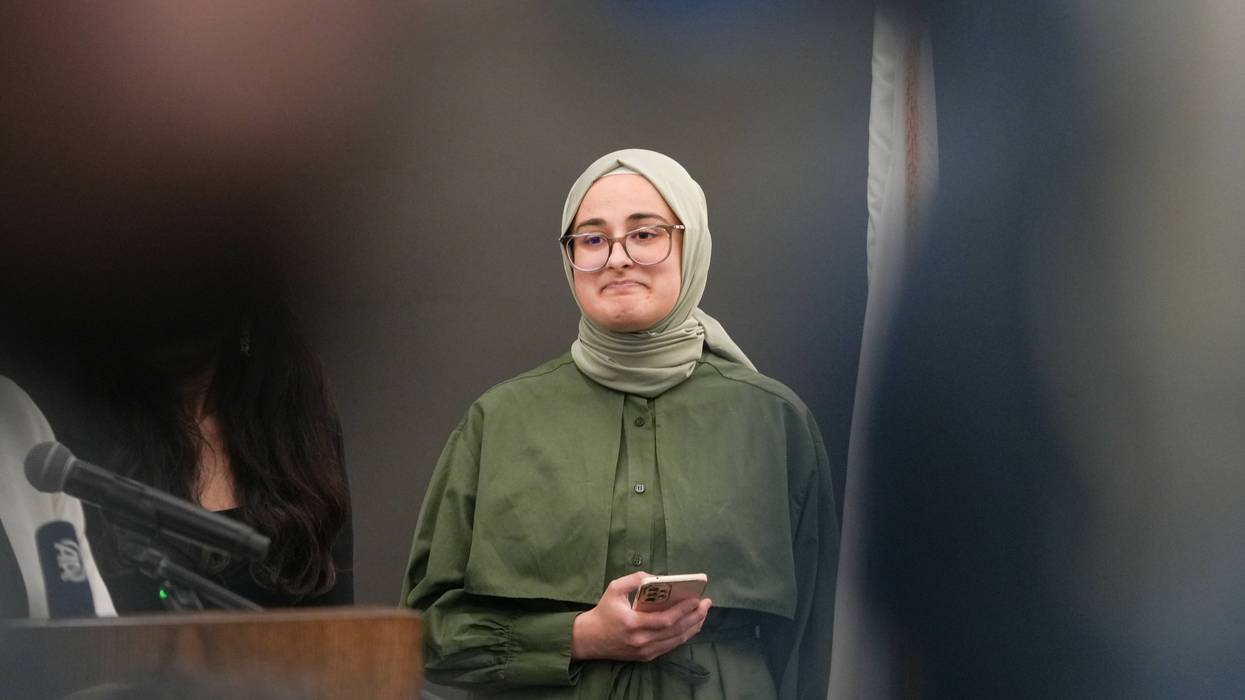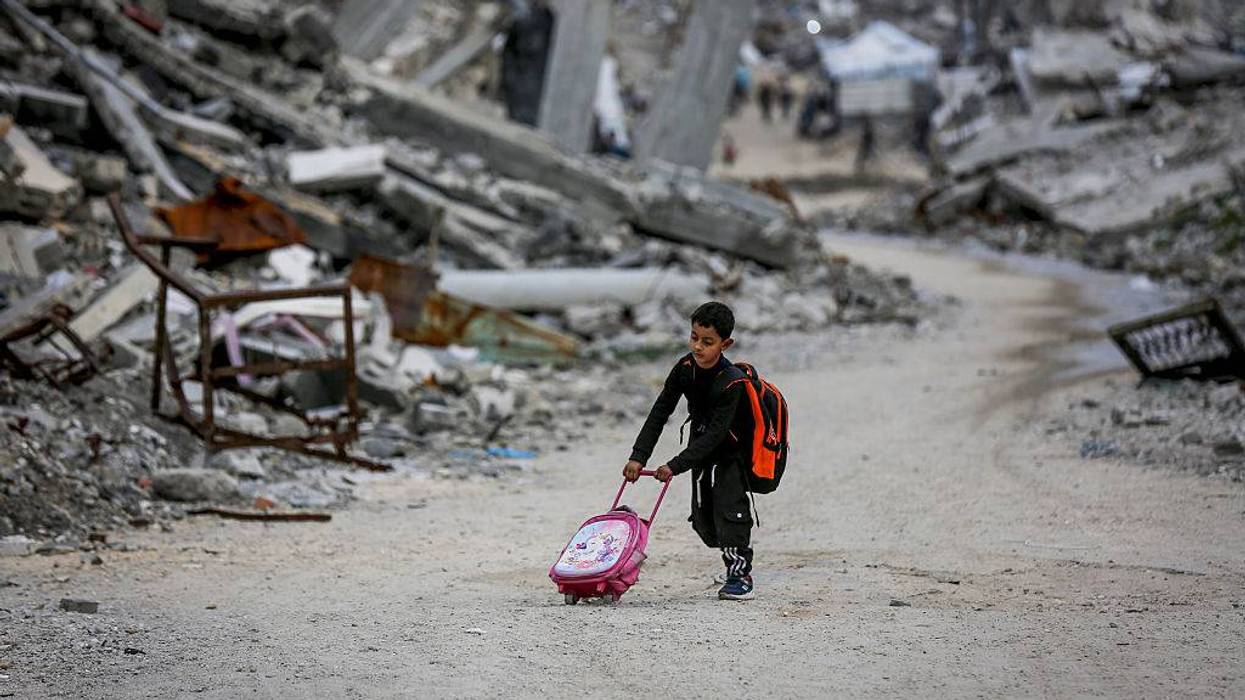French Foreign Minister Jean-Noël Barrot said last week that he will demand Albanese’s resignation or removal during the upcoming UN Human Rights Council meeting, calling her alleged remarks “outrageous and reprehensible."
Other European officials piled on, with German Foreign Minister Johann Wadephul calling her continued service as a UN expert “untenable."
However, what's "reprehensible," Amnesty International secretary general Agnès Callamard argued Saturday, is that the foreign ministers attacked Albanese "based on a deliberately truncated video to misrepresent and gravely misconstrue her messages."
This is what Albanese actually said in Doha:
The fact that instead of stopping Israel, most of the world has armed, given Israel political excuses, political sheltering, economic and financial support. This is a challenge. The fact that most of the media in the Western world has been amplifying the pro-apartheid genocidal narrative is a challenge. At the same time, here also lays the opportunity. Because if international law has been stabbed in the heart, it's also true that never before the global community has seen the challenges that we all face. We who do not control large amounts of financial capitals, algorithms, and weapons, we now see that we as a humanity have a common enemy, and freedoms, the respect of fundamental freedoms is the last peaceful avenue, the last peaceful toolbox that we have to regain our freedom.
“The ministers that have spread disinformation must act beyond merely deleting their comments on social media—as some have done," Callamard said. "They must publicly apologize and retract any calls for Francesca Albanese’s resignation. Their governments must also investigate how this disinformation happened with a view to preventing such situations."
“If only these ministers had been as loud and forceful in confronting a state committing genocide, unlawful occupation, and apartheid as they have in attacking a UN expert," she added. "Their cowardice and refusal to hold Israel accountable stand in stark contrast to the special rapporteur’s unwavering commitment to speaking truth to power."
On Monday, Philippe Lazzarini, who heads the UN Relief and Works Agency for Palestine Refugees in the Near East (UNRWA), said in a statement that "how we act in the face of fake news and vicious disinformation campaigns is a sign of our moral compass."
"Over and over during the war in Gaza, we have seen how coordinated campaigns seek to discredit and silence those who speak out about human rights impacts and violations of international humanitarian law," Lazzarini added. "The latest attacks on Francesca Albanese—an independent expert mandated... to monitor the situation in the occupied Palestinian territory—aim at silencing her voice and undermining the few remaining independent human rights reporting mechanisms."
Israeli forces have killed more than 370 UNRWA staff members since October 2023. Lazzarini and others have also accused Israeli forces of torturing UNRWA staffers in a bid to force false confessions corroborating their dubious allegations that members of the humanitarian agency are Hamas fighters. The International Court of Justice (ICJ)—which is weighing a genocide case against Israel filed by South Africa—found last year that UNRWA has not been infiltrated by Hamas, as claimed by Israeli leaders.
More than 100 prominent international actors, musicians, writers, and other creatives with Artists for Palestine have also signed an open letter supporting Albanese.
"According to the Israeli army itself, at least 83% of those murdered are civilians," the letter states. "What has the French state done about this for over two years? It has not imposed sanctions against a state that is openly—and even proudly—flouting international law."
"Worse yet, through political, diplomatic, moral, and material support, the French state, like many of its European counterparts, allowed this senseless massacre to continue, thereby violating all its legal obligations," the letter continues. "On July 29, 2025, a complaint against [French President] Emmanuel Macron, Jean-Noël Barrot, and other members of the French executive was filed by 114 lawyers before the [International Criminal Court], for 'complicity in genocide in Gaza.'"
The letter's signers including actors Javier Bardem, Mark Ruffalo, and Susan Sarandon; musicians Brian Eno, Peter Gabriel, and Annie Lennox; and authors Annie Ernaux and Alice Walker.
Albanese has long been targeted for her vocal opposition to what she and a UN expert panel on which she did not serve call Israel's genocide in Gaza. The administration of President Donald Trump has imposed sanctions on her after she highlighted US companies' complicity in the Gaza slaughter. US officials have also attempted to discredit her work and called for her removal.
Albanese responded to the attacks by highlighting the number of Palestinian children killed by Israeli forces in Gaza, saying on X Friday that "three European governments accuse me—based on statements I never made—with a virulence and conviction that they have NEVER used against those who have slaughtered 20,000+ children in 858 days."
Albanese underscored that her Doha remarks clearly meant that "the common enemy of humanity is THE SYSTEM that has enabled the genocide in Palestine, including the financial capital that funds it, the algorithms that obscure it, and the weapons that enable it."




